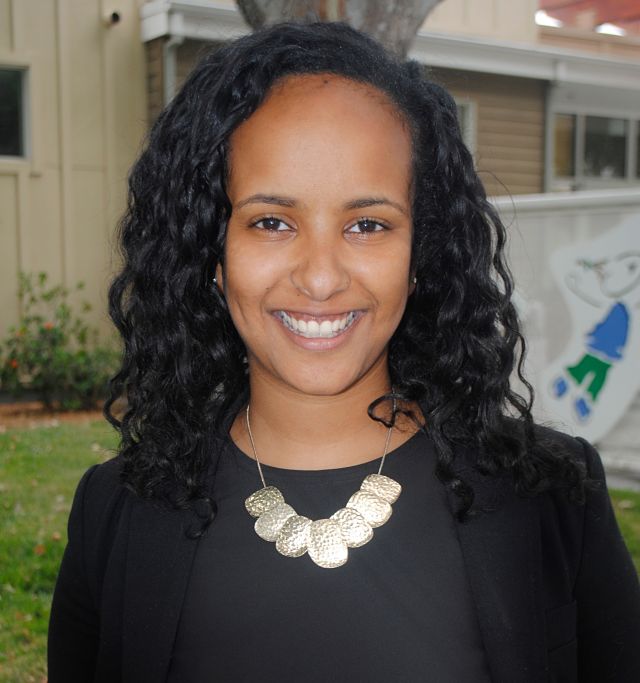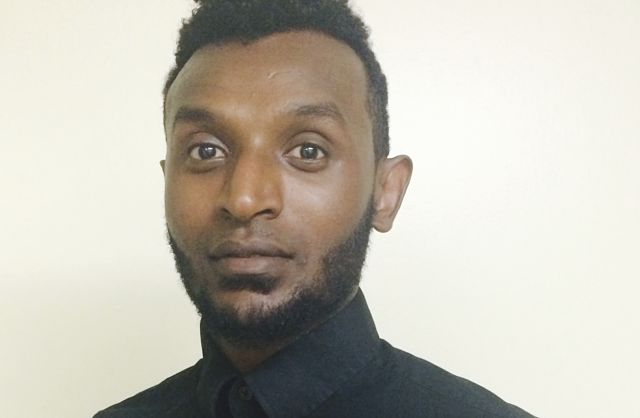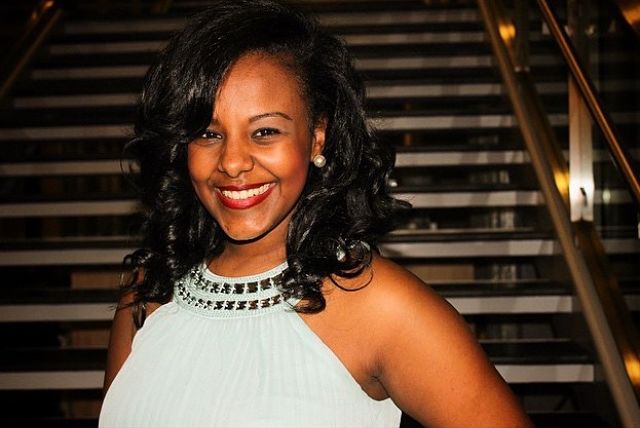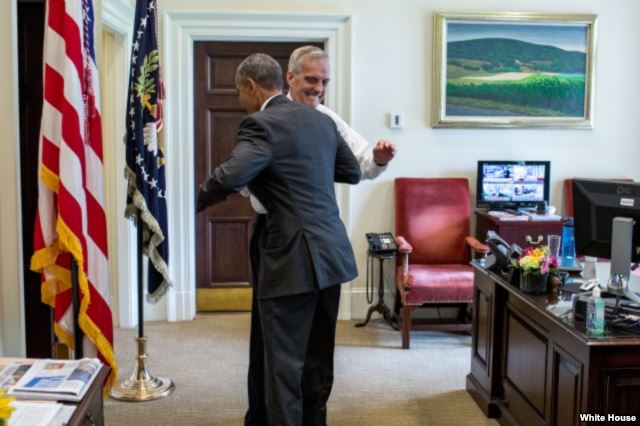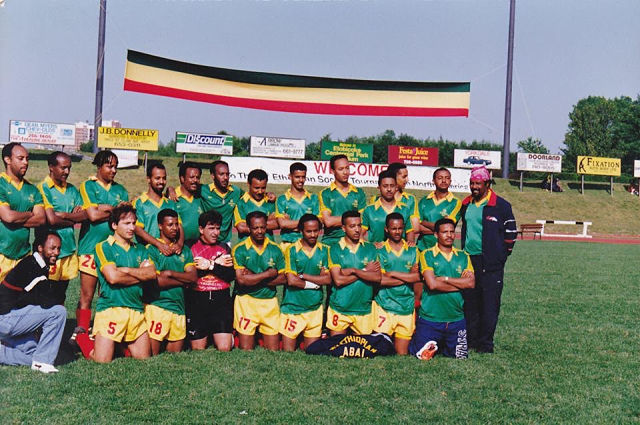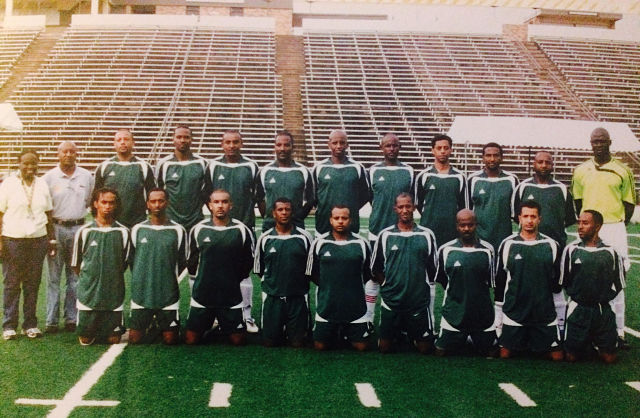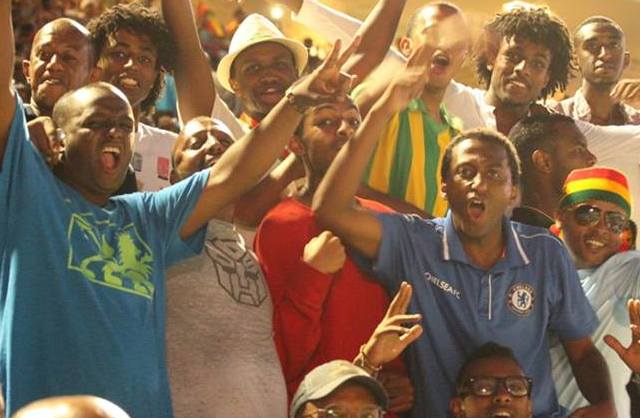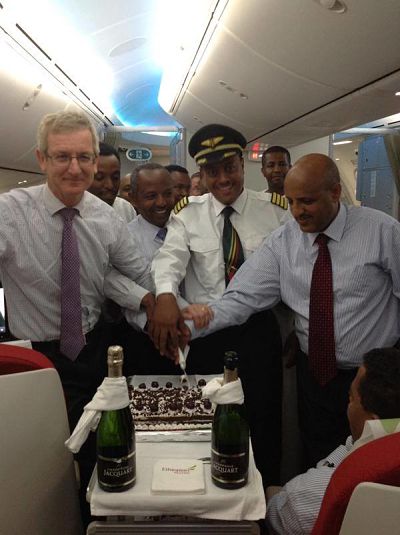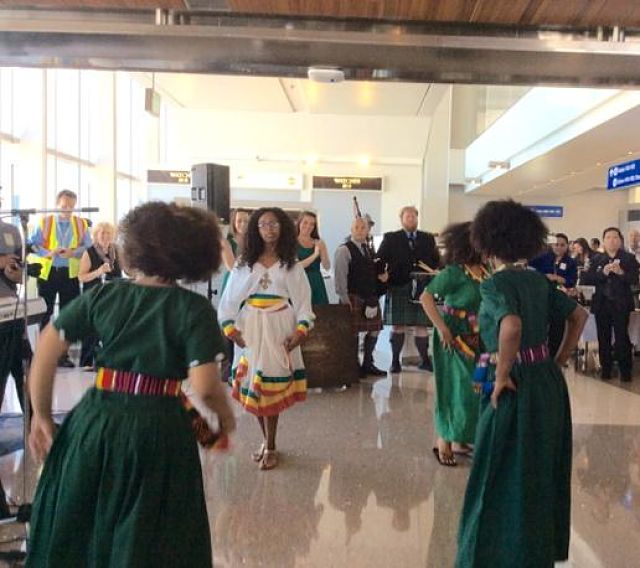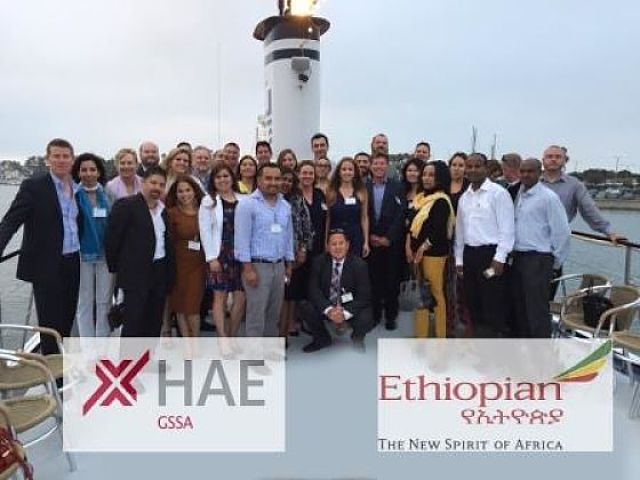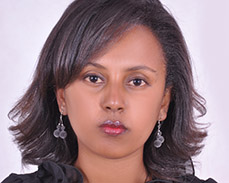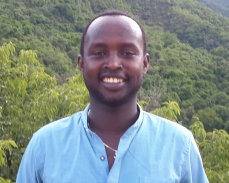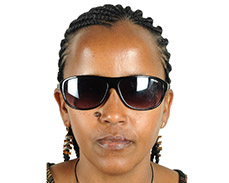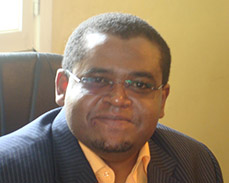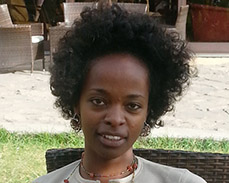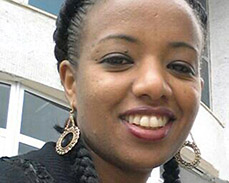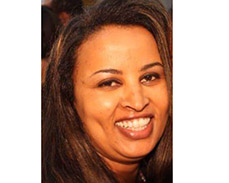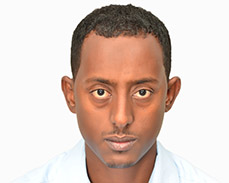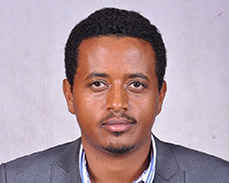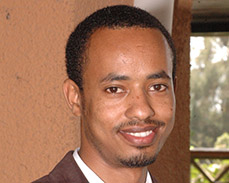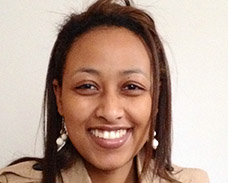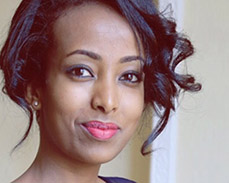VOA News
By Luis Ramirez
July 01, 2015
WHITE HOUSE — President Barack Obama said Wednesday the United States and Cuba have agreed to reestablish diplomatic relations and plan to reopen embassies in Washington and Havana later this month, in the latest move to end years of hostility between the two countries.
Obama said U.S. Secretary of State John Kerry will travel to Havana this summer to raise the U.S. flag over the first American embassy in over five decades.
The U.S. trade embargo and Cuba’s human rights record are among the issues still blocking normalizing relations broken following Fidel Castro’s revolution.
Speaking in Vienna, where he was attending nuclear talks with Iran, Kerry didn’t give a precise date for opening the embassy, but he called the announcement of normalized diplomatic relations between the U.S. and Cuba “long overdue.”
“The United States and Cuba continue to have sharp differences over democracy, human rights and related issues,” Kerry said. But the two countries have identified areas for cooperation, including law enforcement, emergency response, environmental protection and migration, he added.
Earlier Wednesday, the top U.S. diplomat in Havana delivered a letter from the White House to Cuba about restoring embassies in the countries’ respective capitals.
U.S. Interests Section chief Jeffrey DeLaurentis arrived at the Cuban Foreign Ministry in Havana Wednesday morning to hand-deliver the message.
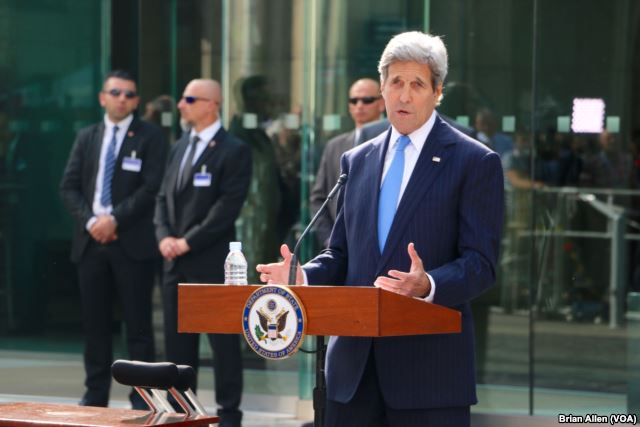
U.S. Secretary of State John Kerry, in Vienna, Austria, for Iran nuclear discussions, spoke to President Barack Obama’s announcement that the U.S. and Cuba had agreed to reopen embassies in each other’s capitals, July 1, 2015.
In his own response, Cuban President Raul Castro said he is “pleased” to confirm his country will resume diplomatic ties with the United States, writing to Obama that Cuba is doing so because it is “encouraged by the reciprocal intention to develop respectful relations and cooperation between our people and governments.”
However, a separate statement from the Havana government said reopening embassies is just the first step in “a long and complex process toward normalization of bilateral ties.” It then demanded an end to the U.S. embargo, the return of the U.S. naval base at Guantanamo, a halt to U.S. radio and TV broadcasts aimed at the island, and other grievances.
Castro’s letter and the government statement were read on state television Wednesday morning. Obama’s announcement was also broadcast on state television.
December announcement
Restoration of official ties is the latest step in the process since Presidents Obama and Castro announced in December the two countries were renewing diplomatic relations.
The leaders held face-to-face talks at April’s Summit of the Americas in Panama.
In May, the United States removed Cuba from its list of state sponsors of terrorism, a move seen as crucial to restoring diplomatic ties.
Speaking through an interpreter Tuesday at the White House, visiting Brazilian President Dilma Rousseff welcomed warming relations and its impact on the rest of Latin America.
“It is really about putting an end to the last lingering vestiges of the Cold War, and it ultimately elevates the relations between the U.S. and the entire region,” Rousseff said.
“May I acknowledge the importance of that gesture to all of Latin America and to world peace at large. It is an important example of relations to be followed,” she added.
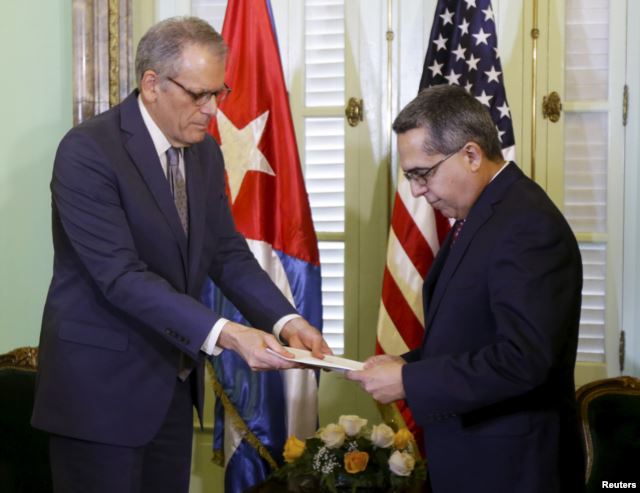
Chief of Mission at the U.S. Interests Section in Havana Jeffrey DeLaurentis, left, delivers a letter, from U.S President Barack Obama to Cuban President Raul Castro regarding restoration of diplomatic relations, to Cuba’s interim Foreign Minister Marceli. (Photo: Reuters)
Geoff Thale, director of programs for the Washington Office on Latin America, said Wednesday, “This announcement is a positive step for the United States and the hemisphere. It’s a long overdue policy change, and opens up the prospects for practical collaboration while allowing us to discuss our differences in a serious way.”
“Though Congress still needs to remove the embargo on trade and travel to Cuba, this announcement is historic and the result of President Obama’s deeper process of updating U.S. policy towards Cuba for the 21st century,” Thale said.
Restoration of services (Click here to see White House Cuba Fact Sheet)
Commercial air and ferry service between the two countries have been, or are being, restored and communications restrictions have been eased, although U.S. citizens can only travel to Cuba under limited guidelines.
However, obstacles remain, including a decades-long U.S. trade embargo of Cuba that only Congress can remove.
Just last week, Washington released its annual human rights report, which cited Cuba for violating basic freedoms in 2014, including the arbitrary arrest of dissidents and limiting access to uncensored, independent information.
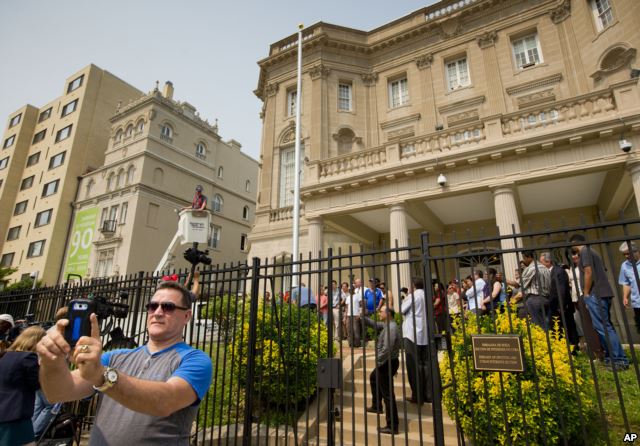
Fernando Rodriguez, left, uses his cellphone to take a selfie as workers from Eastern Shores Flagpoles raise a flagpole at the Cuban Interest Section in Washington in preparation for re-opening of embassies in Havana and Washington, June 10, 2015. (AP Photo)
Reopening embassies
Latin America analyst Mark Jones of Rice University said he thinks reopening embassies will help both countries grapple with such issues.
“What the establishment of formal diplomatic relations and an embassy will do is allow the countries to begin addressing this host of issues that face both countries — be it human rights violations in Cuba and issues regarding compensation for U.S. citizens and also issues related to fugitives from U.S. justice who are residing presently in Cuba and doing something about that for people who have been accused of capital crimes, murder for instance, in the United States and have fled to Cuba,” Jones said.
“Cuba is likely to be less and less a safe haven for those individuals in the years to come,” he added.
However, Jones said he does not necessarily expect warming ties to change Cuba’s one-party Communist system.
He said other Westerners have been visiting the Caribbean island nation for decades with no change in the governmental system.
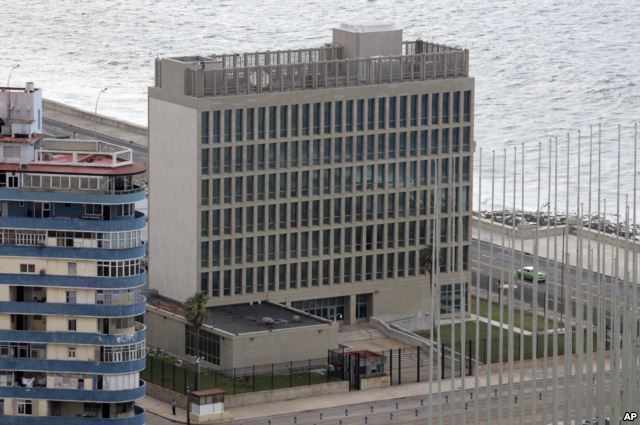
The United States Interests Section diplomatic mission is seen in Havana, Cuba. (AP photo)
Embassies criticized
In a statement, Florida Congresswoman Ileana Ros-Lehtinen, a Republican, denounced the move to reopen an embassy as emboldening the Castro regime “to continue its attacks against the Cuban people.”
Ros-Lehtinen said opening the embassy “will do nothing to help the Cuban people and is just another trivial attempt for President Obama to go legacy shopping.”
However, Ted Henken, Cuba analyst at Baruch College in New York, said the anti-regime policies Ros-Lehtinen supports have done nothing to improve the human rights of the Cuban people.
“Her strategy, the one that she favors, has failed. She’s on the wrong side of this issue,” Henken said.
“Having diplomatic relations with Cuba doesn’t mean we approve of the Cuban government nor do we approve of their treatment of the Cuban people. I think we’ll have a better chance of having some kind of influence in Cuba with a relationship that’s engaging, empowering [rather] than one that is isolating and impoverishing the government and the people,” he said.
US influence
Henken said changing policy toward Cuba is about American interests and influence, not about regime change.
“This is not a silver bullet – it’s not a concession to the [Cuban] dictatorship. It’s a concession to the U.S. people – it’s a concession to pragmatism and to common sense,” he said.
Henken said normal ties can foster cooperation on matters such as the environment, drug interdiction, refugees and family reunions.
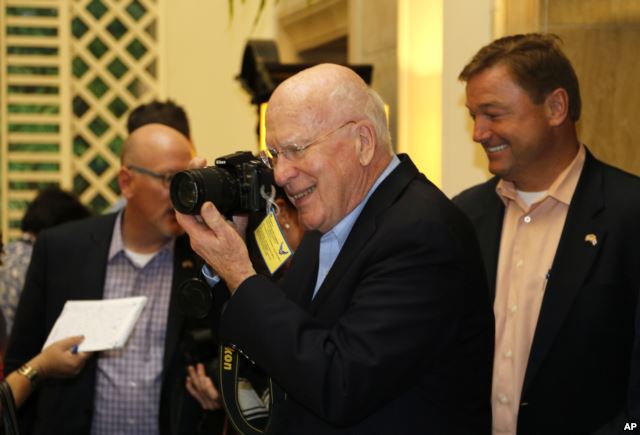
Sen. Patrick Leahy, D-Vt. turns his camera on reporters after a news conference in Havana, Cuba, June 27, 2015. (AP Photo)
Growing pressure
Henken added that with improved relations, the Cuban government will no longer be able to use U.S. hostility as a scapegoat for suppressing the Cuban people and it will be under growing pressure to meet their demands.
U.S. Senator Jeff Flake, a Republican from Arizona, echoed the sentiment, saying in a statement Wednesday: “It’s long past time for U.S. policy toward Cuba to be associated with something other than five decades of failure.
“It is difficult to overstate the importance of resuming diplomatic relations with Cuba, in furthering our own national interests, benefiting our relations in the region, and encouraging a positive future for the Cuban people. I am confident that this move will lead to increased travel and contact between U.S. citizens and everyday Cubans, to the benefit of both,” Flake said.
Some information for this report came from AP and Reuters.
—
Join the conversation on Twitter and Facebook.

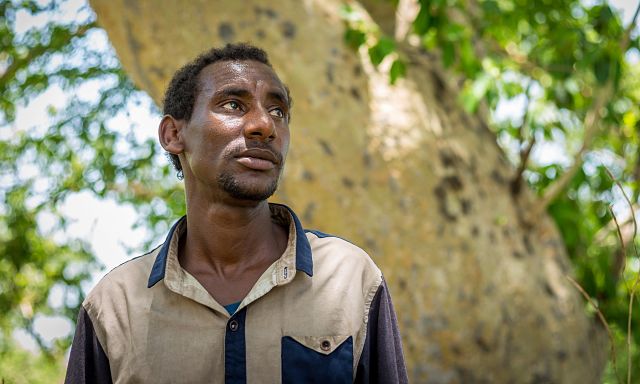
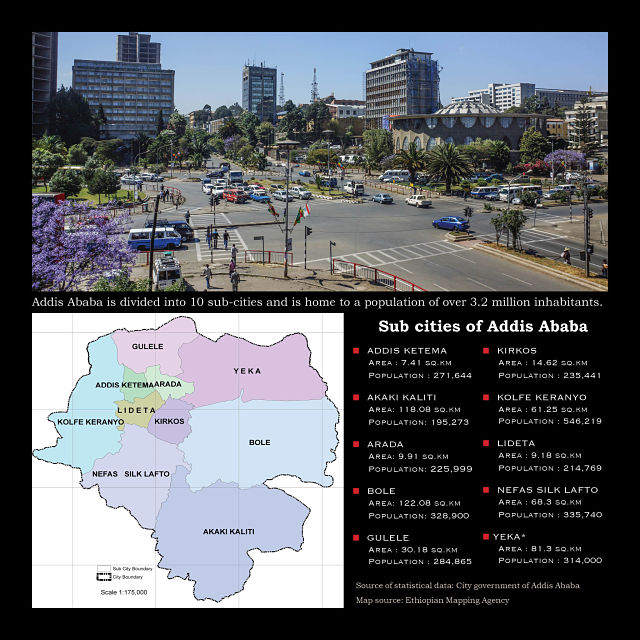
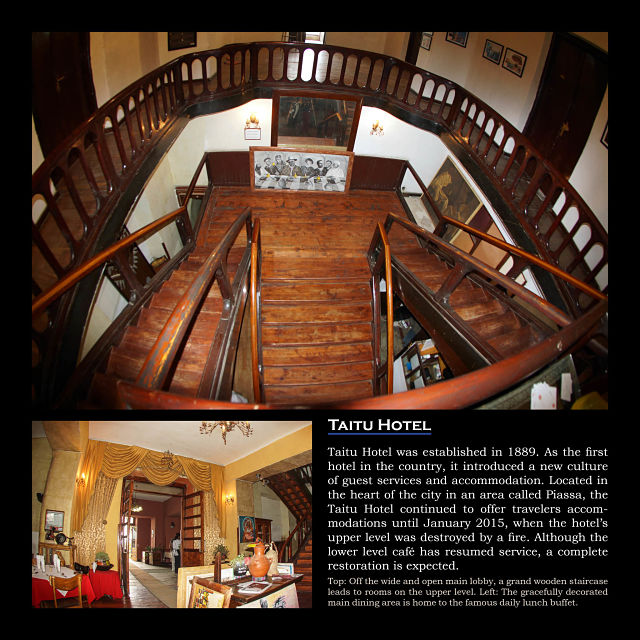
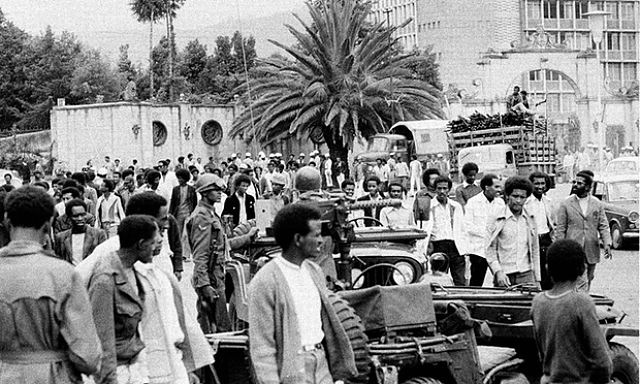
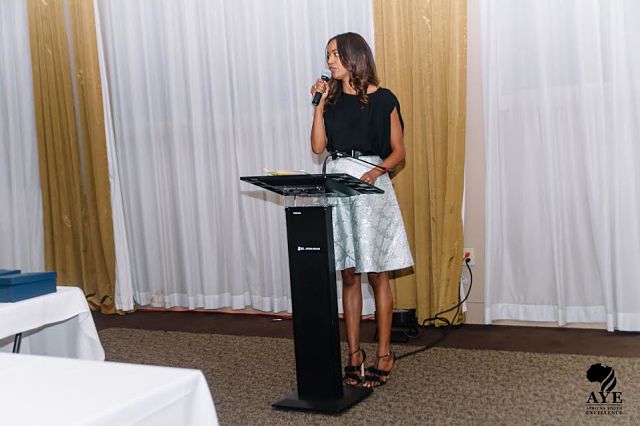
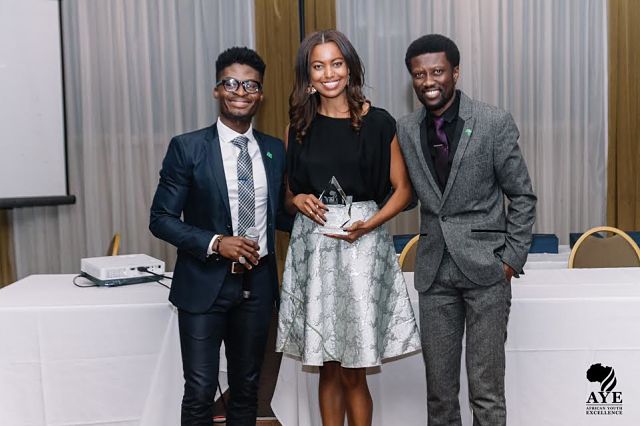

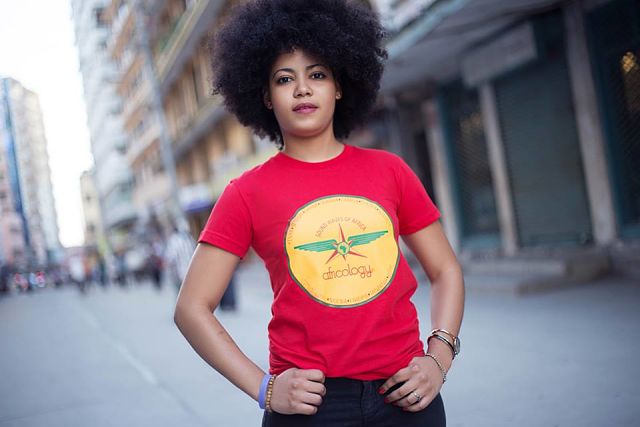





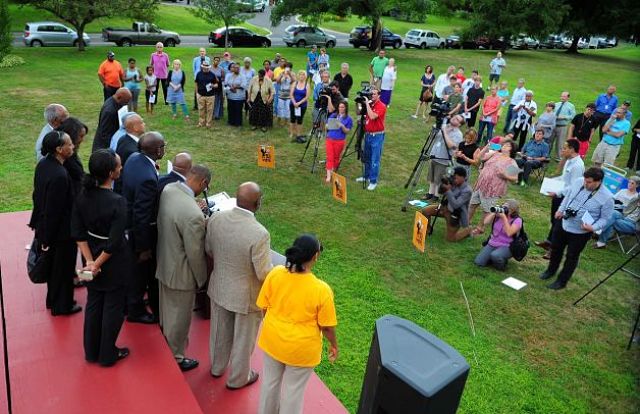
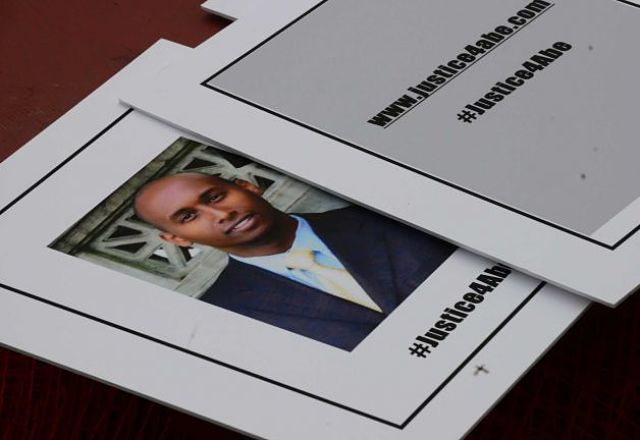
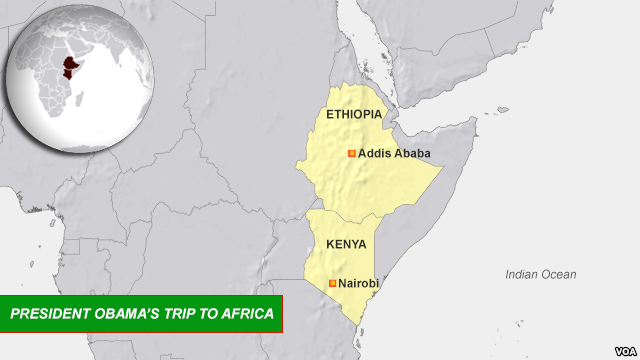
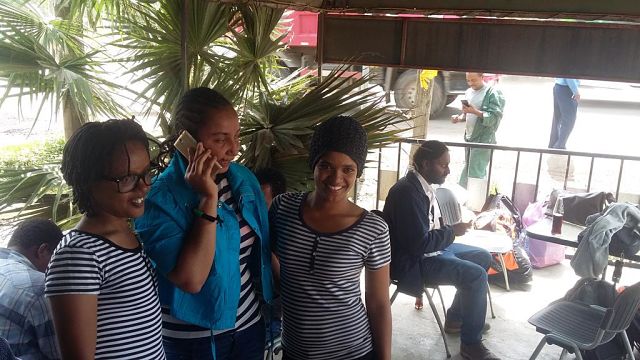
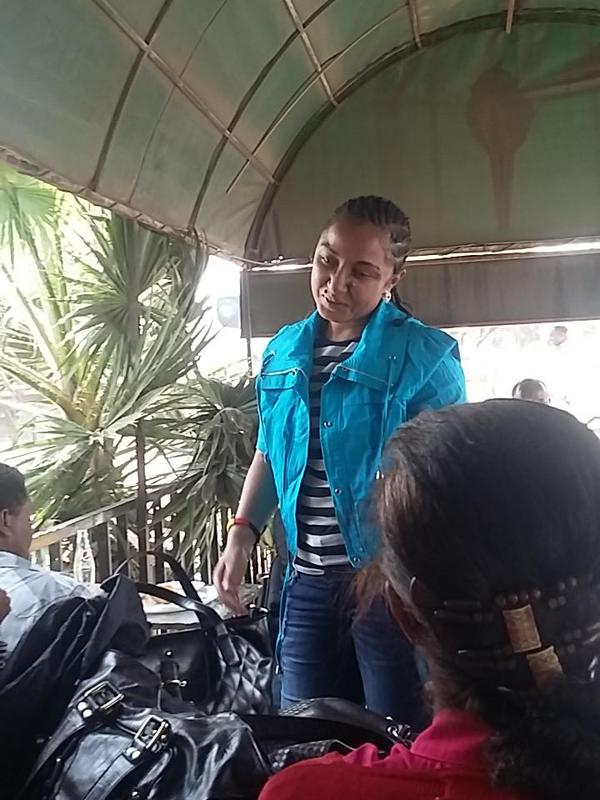
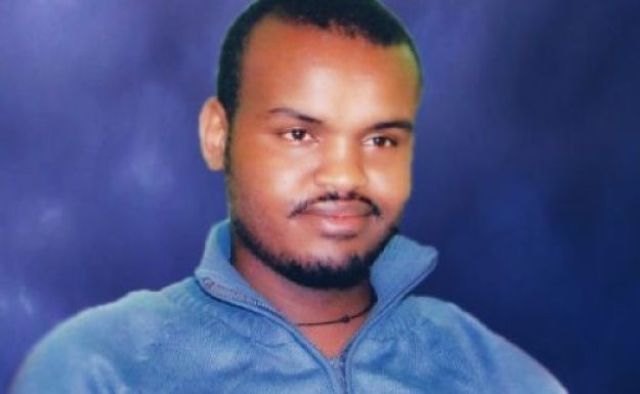
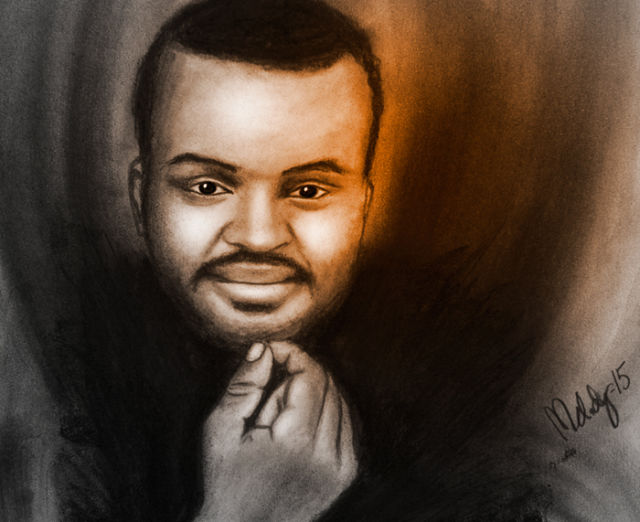

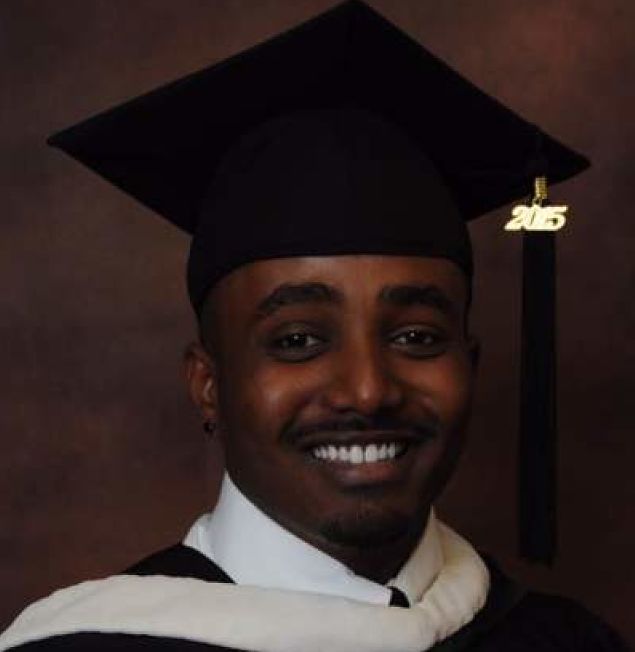
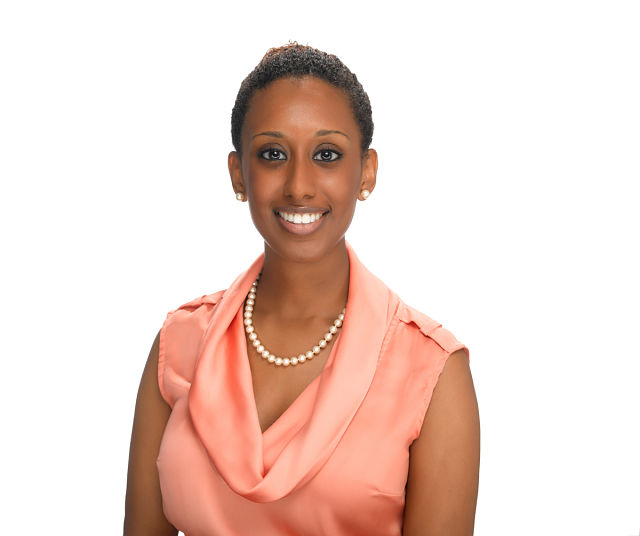 .
.